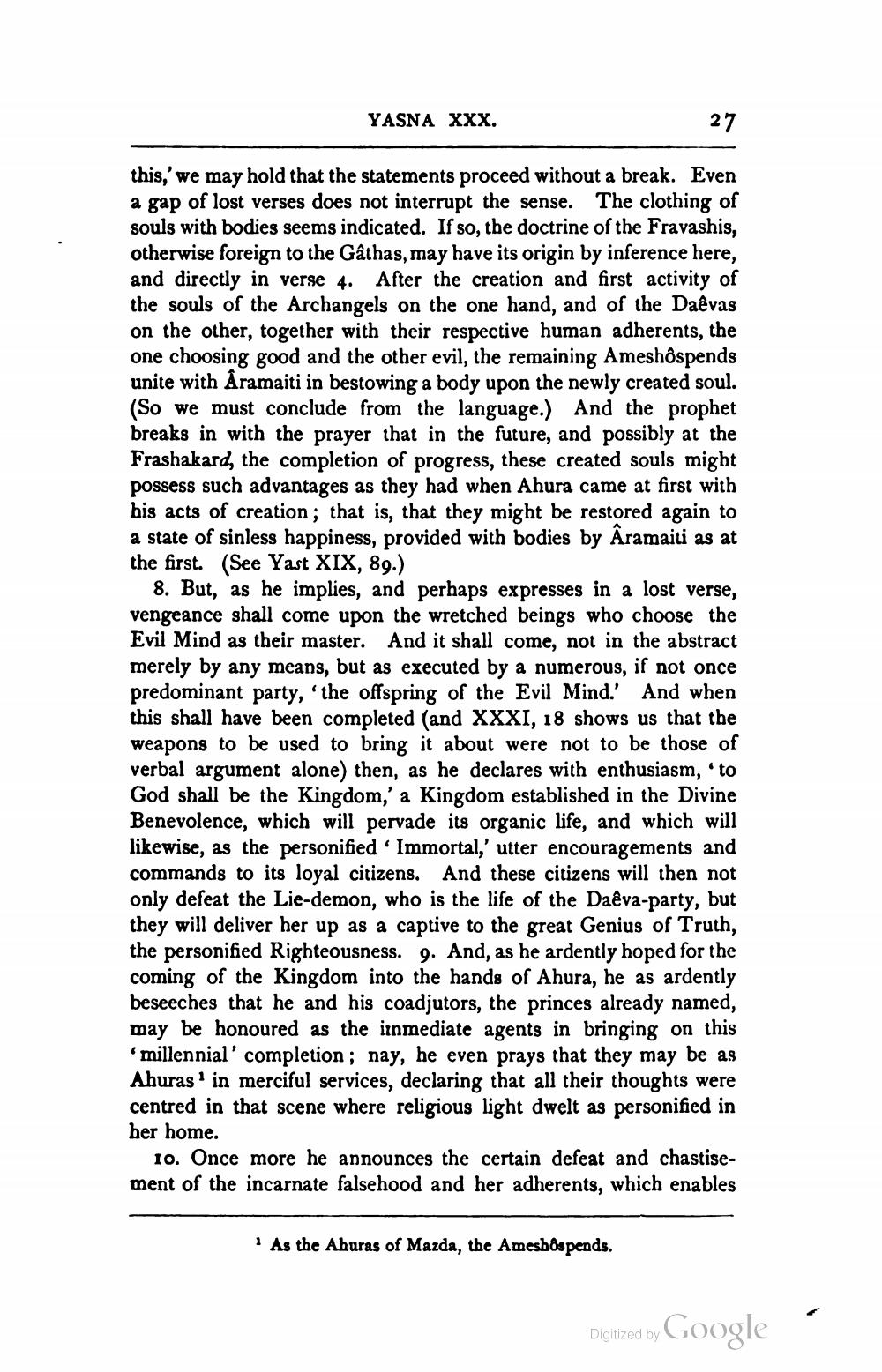________________
YASNA XXX.
27
this,' we may hold that the statements proceed without a break. Even a gap of lost verses does not interrupt the sense. The clothing of souls with bodies seems indicated. If so, the doctrine of the Fravashis, otherwise foreign to the Gâthas, may have its origin by inference here, and directly in verse 4. After the creation and first activity of the souls of the Archangels on the one hand, and of the Daêvas on the other, together with their respective human adherents, the one choosing good and the other evil, the remaining Ameshộspends unite with Aramaiti in bestowing a body upon the newly created soul. (So we must conclude from the language.) And the prophet breaks in with the prayer that in the future, and possibly at the Frashakard, the completion of progress, these created souls might possess such advantages as they had when Ahura came at first with his acts of creation; that is, that they might be restored again to a state of sinless happiness, provided with bodies by Aramaiti as at the first. (See Yast XIX, 89.)
8. But, as he implies, and perhaps expresses in a lost verse, vengeance shall come upon the wretched beings who choose the Evil Mind as their master. And it shall come, not in the abstract merely by any means, but as executed by a numerous, if not once predominant party, 'the offspring of the Evil Mind.' And when this shall have been completed (and XXXI, 18 shows us that the weapons to be used to bring it about were not to be those of verbal argument alone) then, as he declares with enthusiasm, 'to God shall be the Kingdom,' a Kingdom established in the Divine Benevolence, which will pervade its organic life, and which will likewise, as the personified Immortal,' utter encouragements and commands to its loyal citizens. And these citizens will then not only defeat the Lie-demon, who is the life of the Daêva-party, but they will deliver her up as a captive to the great Genius of Truth, the personified Righteousness. 9. And, as he ardently hoped for the coming of the Kingdom into the hands of Ahura, he as ardently beseeches that he and his coadjutors, the princes already named, may be honoured as the inmediate agents in bringing on this
millennial' completion; nay, he even prays that they may be as Ahuras' in merciful services, declaring that all their thoughts were centred in that scene where religious light dwelt as personified in her home.
10. Once more he announces the certain defeat and chastisement of the incarnate falsehood and her adherents, which enables
As the Ahuras of Mazda, the Amesh spends.
Digitized by Google
Digitized by




